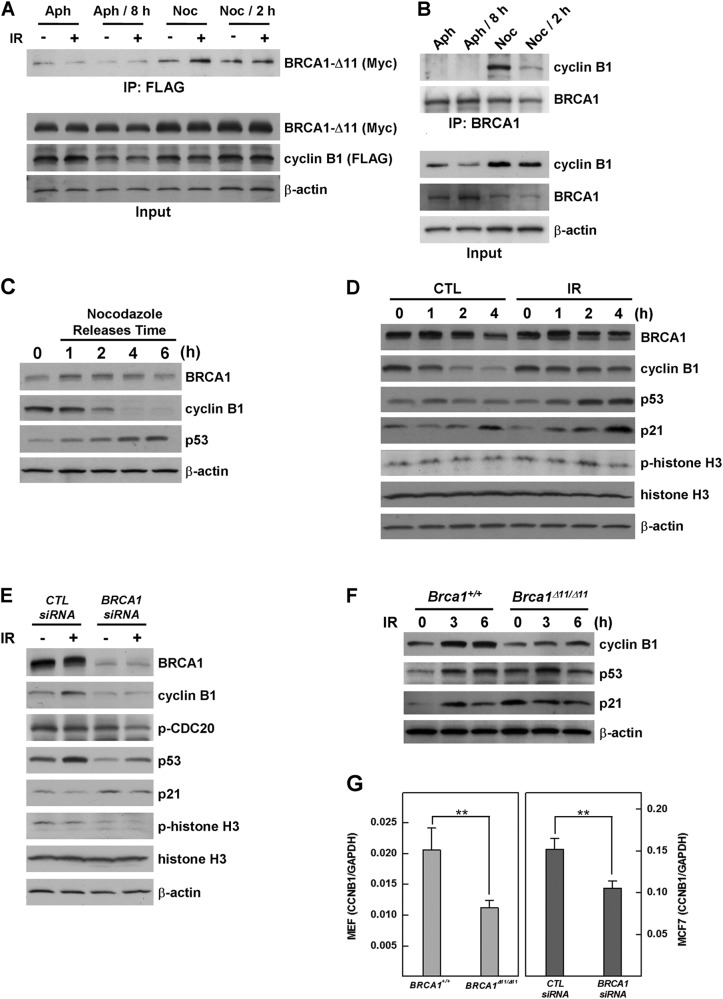Fig. 2. Cyclin B1 stability is dependent on cell cycle phase, DNA damage, and the presence of BRCA1.
a MCF7 cells transfected with Myc-BRCA1-Δ11 and FLAG-cyclin B1 were treated as follows to synchronize the cell cycle: (1) aphidicolin (0.3 μM) for 24 h, (2) release for 8 h, (3) nocodazole (100 ng/mL) for 24 h, and (4) release for 2 h. After synchronization, the cells were treated without or with irradiation (10 Gy), lysed, immunoprecipitated with anti-FLAG antibody-conjugated agarose, and analyzed by Western blotting. Input represents 5% of the protein extract prior to immunoprecipitation. b MCF7 cells treated as above to synchronize cell cycle were lysed, and the lysates were immunoprecipitated with anti-BRCA1 IgG, followed by Western blot analyses using the indicated antibodies. c Protein expression patterns in MCF7 cells were analyzed after nocodazole synchronization and at various times after release. d MCF7 cells were synchronized by nocodazole treatment and released in the presence of irradiation (10 Gy). Protein expression patterns were analyzed at the indicated times after irradiation. e MCF7 cells transfected with scrambled or BRCA1-targeting siRNAs were synchronized by nocodazole treatment and released in the presence of irradiation for 2 h, after which protein expression patterns were analyzed by Western blotting. f WT (Brca1+/+) and Brca1-mutant (Brca1Δ11/Δ11) MEFs were irradiated, and their protein expression patterns were examined by Western blotting. g CCNB1 mRNA levels were measured by quantitative RT-PCR in BRCA1-replete cells (Brca1+/+ MEFs and control siRNA-transfected MCF7 cells) and BRCA1-deficient cells (Brca1Δ11/Δ11 MEFs and BRCA1 siRNA-transfected MCF7 cells). **P < 0.01

